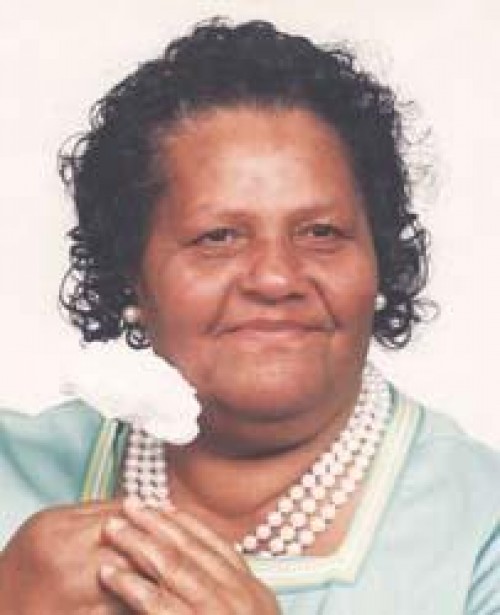
Russell Bruce
September 22, 2009
Zenobia Barrow
September 24, 2009Some type of health care reform is likely to soon pass Congress, but many Louisianans do not trust the politicians making the decisions, speakers at a health-care forum last week said.
John Matessino, president and CEO of the Louisiana Hospital Association, and Bernie Pinsonat, manager of Baton Rouge-based Southern Media and Opinion Research, headed the forum, which was held at Terrebonne General Medical Center.
The discussion, sponsored by the Houma-Terrebonne Chamber of Commerce and the South Central Louisiana Human Services Authority, was designed to inform area doctors about the latest developments in the ever-changing nature of the health care debate.
While Matessino, Pinsonat and many of the physicians in attendance agree that health care coverage for all Americans is needed, a government-run health insurance plan was a favorite of the crowd.
“We’re in favor of health care reform as long as the business community doesn’t get overburdened with footing the bill,” said Drake Pothier, Houma-Terrebonne Chamber of Commerce president and CEO. “That would force businesses to pay increase payroll taxes to fund some of the uninsured.”
Matessino said President Barack Obama’s Sept. 9 address to a joint session of Congress was admirable, but left many holes about how to pay for his reform plan.
In the 47-minute prime-time speech, Obama said reform would be paid through savings by eliminating waste, fraud and abuse in the health care system and reduction in Medicaid payments to hospitals.
“Some of the assumptions are going around that we’re going to do all these wonderful things but it’s not going to cost us anything, won’t add a dime to the deficit and is paid for upfront. That is where we are having some fundamental differences,” Matessino noted.
“There is no such thing as free health care. It does not exist. Somebody has to pay for it,” he continued. “Every time we pay our health premiums, we are paying part of what is provided by Medicare, Medicaid and those that show up with no insurance. We pay 125 percent of the cost of the delivery of health care to cover those that don’t have health insurance or are underinsured.”
Pinsonat conducted a survey of Louisianans last month that reported they trust insurance companies more than Obama on health care reform.
According to survey results, 62 percent oppose the president’s health care position and 78 percent were satisfied or very satisfied with their current health insurance.
“If have health insurance, you have to be worried that health care as you know it will disappear,” Pinsonat said. “You won’t have access to the doctor you want, and you’re going to be paying more for your insurance, and your employer is going to be in jeopardy because he’s going to be taxed to hell and back to pay for all this. If you think the deficit is climbing now, wait until this monstrosity is unleashed.”
The survey also revealed a deep racial divide in how Louisianans are viewing the health care reform debate.
Over 81 percent of whites oppose Obama’s initiatives and 53 percent believe health care reform is necessary. Meanwhile, 79 percent of blacks support Obama’s proposals and 85 percent see health care reform as necessary.
While some opponents decry health care reform as socialist, Matessino saidany new programs would not socialize the system any more than it is right now.
“I dare to say government programs like Medicaid and Medicare pay 65 to 70 percent of health care, and that continues to grow every year,” he noted.
What will affect the delivery of health care is the 10 percent cut in Medicaid payments the last state legislative session made, Matessino said.
Many physicians have decided they will not accept new Medicaid patients, he claimed.
“That’s very unfortunate because it places a lot of pressure on hospitals,” he added.
Matessino said 57 percent of hospitals in the state have a profit margin of one percent or less. Of those, half are losing money.
Phyllis Peoples, TGMC president and CEO, said her hospital is one of those struggling to get by on less than 1 percent profit margin.
“About 30 percent of our patients are in managed care and the rest are Medicare and Medicaid,” she said. “With the round of cuts in the state Legislature and the talk out of Washington, it’s a scary time for hospitals.”
In the Houma-Thibodaux metropolitan area, state Medicaid payments to community hospitals were $6.8 million, or 26 percent below the cost of care provided in 2006, according to a Louisiana Hospital Association economic impact study.
The outcome of the Congressional battle over health care reform will have substantial consequences locally.
According to the study, the health care sector in the region provided 9,617 jobs or 4.6 percent of total regional employment, with an annual payroll of $325.3 million. Of that, 3,558 were hospital employees with a payroll of $132.9 million.
All sides just hope a consensus on the health care reform bill comes to the forefront so they can decide its merits.
“We’re just waiting for the target to stop moving so much before we take an official position,” Pothier said.
“This debate is beyond what’s best for the hospital association. This is about what’s best for America,” Matessino said. “We all want to see health-care coverage for everybody. We don’t want anybody to not have health insurance and have to show up in somebody’s emergency room and be a burden on the system.
“We have to treat our uninsured poor with real dignity in this proces,” he added.
John Matessino (at left), president and CEO of the Louisiana Hospital Association, and Bernie Pinsonat, manager of Baton Rouge-based Southern Media and Opinion Research, agreed most Louisianans favor a government-run health insurance plan. * Photo by KEYON K. JEFF











